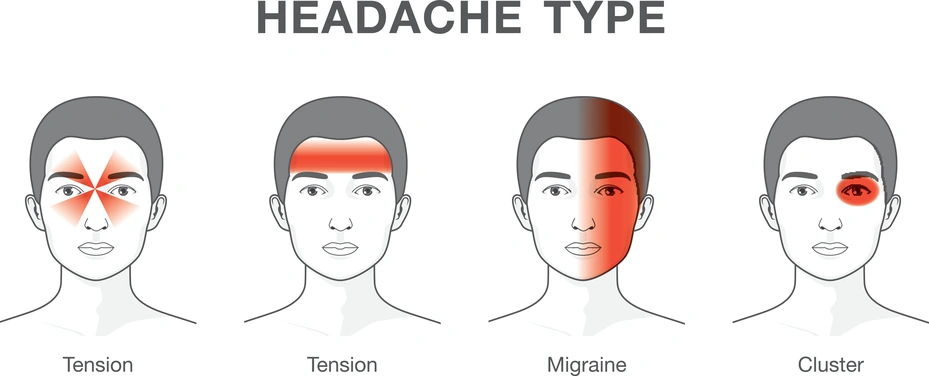Frequently Asked Questions (FAQ)
Is Migraine a symptom of COVID-19?
According to a report released by the World Health Organization (WHO), dose to 14% of people with COVI D-19 experience headaches. Headache is a broad term that may include Migraine headache before, it is possible that Migraine could be a symptom of COVID-19. However, other symptoms such as fever, dr cough & shortness of breath are more common in COVID-19 infection. A person should always look for these other signs of infection and contact the doctor if they experience these symptoms.
Do people who suffer from Migraine are at a greater risk of COVID-19?
Currently, there is no formal research looking at the relationship between Migraine and COVID-19 specifically. However, people who experience Migraine but are otherwise in good health are likely not at an elevated risk for COVID-19 or complications from COVID-19
Who are the people at more risk of COVID-19 infection?
Some groups of people are at more risk for severe complications from diseases such as C VID-19. At-risk individuals include those who:
- Are over the age of 65 years
- Have underlying Heart conditions
- Have Chronic Kidney or Liver disease
- Have Diabetes
- Have severe Obesity
- Have a weakened immune system, including people receiving certain treatments, such as Chemotherapy, Steroid drugs or other Immune-Suppressing drugs.
Is it afe to take NSAIDs to control in during Migraine attack i the time of COVID-19 pandemic?
Non -steroidal anti-inflammatory drugs (NSAIDs) such as Ibuprofen, Diclofenac, Naproxen are the most commonly used as pain killer medicines. At present there is no sufficient scientific evidence connecting use of NSAIDs with worsening COVID-19 symptoms. Thus, you can use these medicines to control your pain during Migraine attack under the advice of your healthcare professional.
I am very anxious and worried at this time of COVID-19 pandemic. Can stress trigger Migraine attack?
Stress can trigger Migraine for many people. COVI D-19 itself can be a source of stress, due to worrying about the infection or constantly hearing about it. Taking measures to reduce stress & anxiety during these times can help. Some tips to de-stress at home & reduce the chances of Migraines occurring:
- Take breaks from news stories and social media feeds about COVI D-19.
- Exercising regularly, do breathing exercises, stretching or meditation practices.
- Eat a healthy diet, stay hydrated and get enough sleep.
- Avoid alcohol and smoking.
- Focus on the positive things.
- Stay connected with friends or family members to discuss feelings.
Does any Anti-Migraine medicine reduce immunity or pose increased risk of COVID-19 infection?
There is no evidence that the medicines used in the treatment of Migraine suppress or activate the immune system or pose an increased risk of COVI -19 infection. Thus, if you get a Migraine attack, you should take the medicine as per your doctor’s advice to control it.
If I have Covid 19 infection, how can I manage migraine?
People with COVID-19 who experience Migraine will still need treatment. People experiencing new headaches, including Migraine headaches, can try pain-relieving medicine such as Sumatriptan, Naproxen, Paracetamol, diclofenac etc. Drinking plenty of water and getting enough sleep, doing yoga, meditation may help reduce symptoms. Being Covid-19 positive, you need to observe physical distancing. Call your doctor, if you experience severe Migraine symptoms or your current medication does not control your attacks. The doctor can guide you through the teleconsultation i.e. virtual visits over mobile phones or computers. Be sure to have enough stock of your medicines.
Are there any medicines to prevent Migraine attack? Should I take these medicines?
Certain medicines such as Propranolol, Sodium Valproate, Topiramate are used to prevent Migraine attacks. If you suffer from Migraine attacks quiet frequently talk to your doctor who may prescribe preventive medications to you. However, do not use these medicines on your own without consulting your doctor. If you are already taking such preventive medications talk to your doctor about the continued use of these drugs. Be sure to have enough stock of your medicines.





